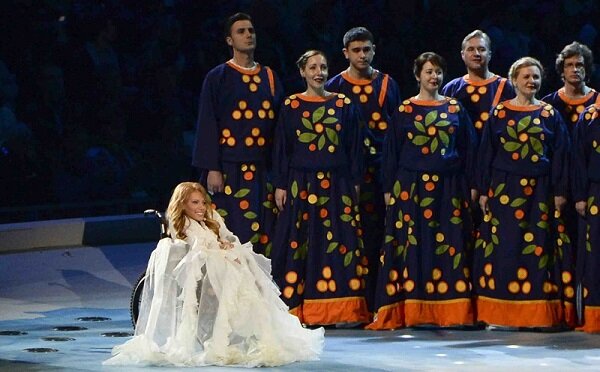Russia is furious that the Ukraine refuses the Russian singer who was to participate in the Eurovision Song Contest, entry to the country.
The Song Competition will this year be held in Ukraine’s capital of Kiev.
– Ukraine’s Security Service has given Julija Samojlova an entry ban for three years, the security service SBU informed on Wednesday.
– The decision was made just now, according to the statement.
Travel from Crimea
Julija Samojlova attended a concert of Russian occupied Crimea in 2015, which according to the Swedish broadcaster SVT, can be regarded as a violation of Ukrainian law because it is illegal to travel directly to Crimea from Russia.
Russian Deputy Foreign Minister Grigory Karasin reacted strongly to the decision.
– This is a terrible, cynical and inhuman action by the authorities in Kiev, he said to the Interfax news agency.
Eurovision chief awaiting
The Norwegian Jon Ola Sand is the EBU’s Manager for the Eurovision Song Contest. In a Text message to NRK, he writes that he has noted that several media reports about the entry ban.
– We have not been able to verify this from our contacts in the Ukraine, so for now we do not comment on this, says Sand.
Sang at the Paralympics
On March 12th, it became clear that Julija Samojlova will perform the Russian contribution “Flame is Burning” in Kiev in May. Already the day after it emerged that the Ukrainian security services intended to investigate her.
Samojlova, who is a wheelchair user, was singing at the opening ceremony of the Paralympics in Sochi in 2014 and reached the final of Russian “X Factor” in 2013.
The already cool relations between Ukraine and Russia did not improve after last year’s Eurovision Song Contest. When Ukrainian Jamala won with “1944”, a song about the Crimean Tatars troubled history.
Annexation of Crimea
Although the text is not directly linked to the Russian annexation of Crimea from Ukraine in 2014, there was little doubt that it can be interpreted such – and there are some very strong words: “When strangers come, they come to your house. They kill everyone and say they are not guilty. ”
Crimean Tatars, the minority that singer Jamala belong to, opposed the Russian takeover of the peninsula in the Black Sea and risk persecution. Many of the peninsula’s Russian-speaking citizens however supported annexation.
Russian politicians raged after the Ukrainian victory and regarded the song and the victory as being political. Frants Klintsevitsj, member of the Russian Federation Council, advocated for a Russian boycott of this year’s final.
Source: NTB scanpix / Norway Today



